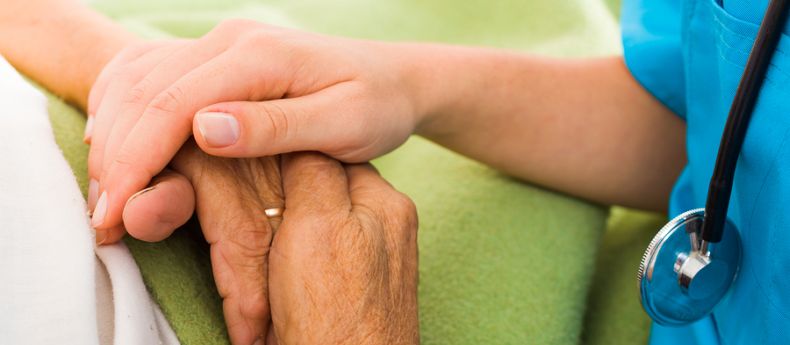
Five Things You Should Know about Your UFH Nurse
Chanell Jan Carcallas-Concepcion, RN PhD Manager, Nursing Education Department
Beijing United Family Hospital and Clinics
There is more to a United Family Healthcare (UFH) nurse than meets the eye. Most people view nurses in China as merely the “doctor’s assistant” who takes your vital signs, draws blood, and asks a few questions. The UFH nurse is in a class above the rest. Patients and doctors have described UFH nurses as “the best,” “excellent,” “superb,” “quality,” “caring,” and “well-trained.” With over 560 nurses, our nursing staff is the largest group within UFH, comprising of a committed cadre of healthcare professionals. Here are five reasons to re-think the way you view UFH nurses.
1: No white caps
The hospital dress code at UFH does not include wearing what previously was the universal symbol of nursing – the white nurse’s cap. The cap that once symbolized dignity, dedication, and education has now become unnecessary. Many view caps as a reminder of the past, when nurses were viewed as “minions and maids.” Most importantly, caps can be a source of infection. What differentiates the UFH nursing staff is not what they wear, but what they do. Nurses are not relegated to merely following doctors’ orders; they collaborate with physicians and the entire healthcare team for better patient outcomes.
2: Focus on care, not only the cure
Caring is the essence of nursing. Although caring is not an attribute exclusive to nurses, nursing requires a unique brand of care. Nurses focus on attending to the human response to illness and health conditions rather than on diagnosing or curing disease. What makes being cared for by a UFH nurse unique? For UFH nurses, care is not just a feeling or a thought; it is a deliberate act in service of the patient.
3: Putting a premium on education and training
What most patients do not see are the many hours their UFH nurse spends in training. Although all new hires have nursing education degrees, nursing licenses, and many have extensive experience practicing at the best public hospitals in China or abroad, the moment any nurse is hired at a UFH facility, he or she will go through to a two-day employee orientation, a three-day new nurse orientation, weeks of ward orientation, and six months of preceptor-guided practice. Within the first year of employment, UFH requires new nurses to attend customer service training, basic life support (BLS) training, infection control training, training with simulated case studies, training in a nursing skills laboratory, and other in-service training programs.
Most UFH facilities employ Western-trained nurse educators with Bachelor’s of Science, Masters, or PhD degrees in Nursing, to assess, plan, and implement training programs. New nursing graduates undergo a special 12-month program designed to ease their transition from student to well-trained nurse in an international-standard hospital. Trainers and educators also participate in training to ensure that they meet the learning needs of their staff. UFH Chief Nursing Officer Shen Xiaoyan also champions evidence-based nursing practice in the hospital. Initiatives that foster an evidence-based nursing environment include holding monthly journal clubs, developing research studies, and aligning policies and protocols with evidence based-nursing practices.
4: Communication matters
To be a successful UFH nurse requires one to possess good communication skills. Equipped with bilingual abilities, nurses often serve as translators for foreign patients and doctors. They are trained to utilize communication tools such as AIDET (Acknowledge, Introduce, Duration, Explanation, Thanks) and SBAR (Situation, Background, Assessment, Recommendation) Dealing with multicultural patients and managing their high expectations can be very challenging, but UFH nurses routinely navigate through these challenges as part of providing a great patient experience.
5: Professional growth
UFH seeks to provide nurses with opportunities to grow and develop their nursing careers. The UFH career ladder for nurses consists of four different levels (Levels 1 through 4). Nurses can move up a level by passing an annual Promotion Exam. The Promotion Exam involves a written portion and a skills portion. The written test assesses knowledge and critical thinking regarding general nursing, each nursing specialty, and leadership. The skills simulation assesses a nurse’s real-time ability to deal with a variety of patient case scenarios. Senior nurses also have a chance to become Nurse Specialists and Nurse Unit Educators as well as other leadership positions, such as Head Nurse or Clinic Manager. An annual skills checklist also ensures that all nurses meet UFH nursing standards.
Being a UFH nurse requires more than great nursing skills; it also requires up-to-date nursing knowledge, the right attitude, and great communications skills. Behind the scenes, nurses work tirelessly to ensure that patients get the best possible care. The next time you see a UFH nurse, know that he or she is uniquely different from any nurse you may meet elsewhere. In addition to professional medical care, you can count on them to provide you with an excellent patient experience.
Copyright United Family Healthcare 2014 All right reserved - 京卫网审[2014]第1927号 - 京ICP备13017554号-4
深圳新风和睦家医院 广审号:粤(B)广[2024]第09-10-1049号

